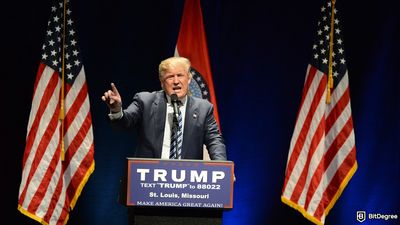Gary Gensler claims the crypto industry is full of "fraudsters" and "Ponzi schemes."
The crypto market's current state of affairs echoes the turmoil of the 1920s US stock market, laden with deceitful practices and schemes.
This sentiment was expressed by Gary Gensler, the Chair of the United States Securities and Exchange Commission (SEC), at the Piper Sandler Global Exchange & Fintech Conference on June 8th.

Did you know?
Want to get smarter & wealthier with crypto?
Subscribe - We publish new crypto explainer videos every week!
What is Uniswap? (UNI Token Explained With Animation)


Addressing the audience, Gensler drew parallels between the two eras, highlighting the rampant presence of "hucksters," "fraudsters," and "Ponzi schemes."
The presence of scams in the current crypto market is a consequence of the industry's failure to comply with securities laws, Gensler opined. He expressed concern about this trend, noting:
With wide-ranging noncompliance, frankly, it’s not surprising that we’ve seen many problems in these markets. We’ve seen this story before. It’s reminiscent of what we had in the 1920s before the federal securities laws were put in place. Hucksters. Fraudsters. Scam artists. Ponzi schemes
The man argued that Congress effectively regulated the stock market through securities laws, implying that similar measures could be used to cleanse the crypto market of such malicious actors.
Gensler applauded the Securities Act of 1933 and the Securities Exchange Act of 1934. He claimed that these key legislations had allowed US securities markets to flourish for over eight decades.
Gensler believes the present-day "crypto securities markets" should benefit from the same laws, as they equally warrant the protective measures outlined within these legislations.
Citing the legal decision against Telegram Open Network, Gensler asserted that crypto assets classified as securities are not immune to securities laws, regardless of their utility.
Some promoters of crypto asset securities contend that their token has a function beyond simply being an investment vehicle. As the courts in the Telegram case and others have said, however, some additional utility does not remove crypto asset security from the definition of an investment contract.
Translating this stance into practical implications, Gensler stated that crypto securities exchanges must comply with securities laws. This includes separation of exchange, a broker-dealer, and clearing services functions.
The SEC Chair debunked the argument that this separation of functions is unachievable. Rather, he suggested, it requires a dedicated effort to be implemented effectively.
Despite his stance, Gensler's tenure as SEC Chair has not been without controversy. The crypto industry has been particularly vocal in its criticism, especially in light of the SEC's legal actions against crypto exchanges Binance and Coinbase.






















